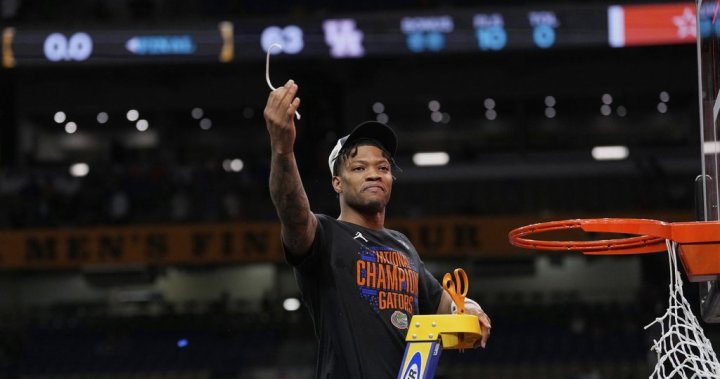In what might seem like a quiet move amid the NBA playoff race, the Toronto Raptors have signed rookie guard Alijah Martin to a two-way contract, adding another developing talent to their roster as the season winds down. As someone who’s covered Toronto sports for over a decade, I’ve seen how these seemingly small signings often reveal much about a franchise’s direction.
Martin, who went undrafted after his college career at Florida Atlantic University, has been grinding in the G League with the Raptors 905 this season. His journey exemplifies the winding path many players take to reach the NBA – something we’ve seen repeatedly with Toronto’s developmental system.
“Two-way contracts have become increasingly valuable for building organizational depth,” explains Raptors 905 head coach Eric Khoury, who I spoke with earlier this season about talent development. “They give players like Martin a chance to develop while providing the main club flexibility.”
What stands out about Martin is his defensive intensity and athletic ability. Standing at 6-foot-2, he’s known for playing bigger than his size – a trait that aligns with Toronto’s historical preference for versatile defenders. During his time at Florida Atlantic, Martin helped lead the Owls to their first-ever Final Four appearance, averaging 13.4 points and 5.3 rebounds in his final collegiate season.
I watched Martin during a recent Raptors 905 home game, and his commitment to defense immediately caught my attention. He moves his feet well, fights through screens, and contests shots with surprising effectiveness for his size. These attributes align with Toronto’s traditional defensive identity, even as the team rebuilds.
The timing of this signing is particularly interesting. With the Raptors mathematically eliminated from playoff contention, these final weeks offer valuable evaluation time for young talent. Martin joins a growing list of players getting opportunities as Toronto looks toward next season.
According to Basketball Reference, the Raptors have already used 26 different players this season – among the highest totals in the league. This roster fluidity reflects both injury challenges and the organizational pivot toward development.
Toronto basketball insider Blake Murphy noted on social media that Martin’s signing “continues the pattern of mining undrafted talent that’s served the organization well historically.” From Fred VanVleet to Chris Boucher, the Raptors have found value where other teams haven’t looked.
The financial implications are minimal but important. Two-way contracts allow teams to develop players without committing full roster spots or guaranteed money, providing flexibility for future moves. In today’s NBA, with luxury tax concerns and the new collective bargaining agreement’s more punitive restrictions, these contract mechanisms matter more than ever.
For Toronto fans seeking meaning in these late-season moves, Martin’s signing represents the continual search for diamonds in the rough. While casual observers might overlook such transactions, they form the foundation of sustainable team building.
Walking through Scotiabank Arena last week, I overheard conversations among season ticket holders discussing not current wins, but future potential. This shift in focus reflects the reality of where Toronto stands – rebuilding while maintaining competitiveness.
Statistically speaking, two-way players face long odds of becoming rotation fixtures. However, Toronto’s player development system has beaten those odds before. According to NBA.com tracking data, the Raptors have converted seven two-way contracts to standard NBA deals since the program began in 2017 – among the highest rates in the league.
Martin joins Javon Freeman-Liberty as Toronto’s current two-way players. Under NBA rules, these players can be active for up to 50 NBA games while spending the remainder of their time in the G League.
For Martin personally, this represents the culmination of years of work. His college coach at FAU, Dusty May, described him as “relentless in his approach to improvement” when I reached out for comment on his former player.
What does this mean for Toronto’s future? While no single signing determines a franchise’s direction, patterns emerge through collective decisions. The Raptors continue investing in development while maintaining flexibility – signaling a patient approach to their rebuild rather than seeking quick fixes.
As the season concludes and attention turns to the draft lottery and offseason moves, Martin and players like him represent Toronto’s commitment to finding value on the margins. In a league where stars ultimately determine championship contention, the difference between good and great teams often comes down to these developmental successes.
For now, Martin will likely split time between the NBA club and Raptors 905, gaining valuable experience while the organization evaluates his long-term potential. For Raptors fans, his journey becomes another storyline to follow during this transitional period.
In Toronto’s basketball ecosystem, Martin’s signing may seem minor today, but history suggests these are exactly the moves worth watching closely.







